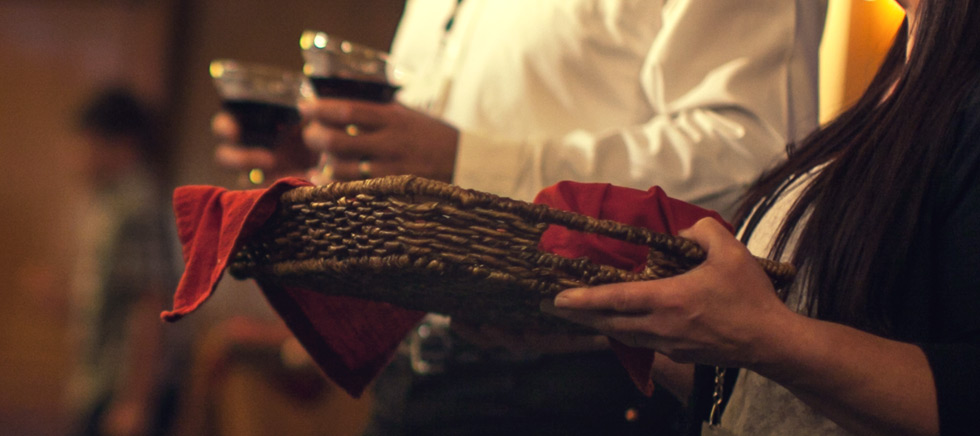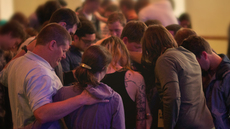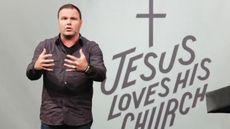Communion can be dangerous. Did you know you could drink judgment upon yourself if you are not careful? This is the reason it’s important to understand what Communion is, who should take it and how it should be practiced.
What Is Communion?
Communion, also known as the Lord’s Supper or Eucharist, is one of the two sacraments given by Jesus to the church.
Now as they were eating, Jesus took bread, and after blessing it broke it and gave it to the disciples, and said, “Take, eat; this is my body.” And he took a cup, and when he had given thanks he gave it to them, saying, “Drink of it, all of you, for this is my blood of the covenant, which is poured out for many for the forgiveness of sins. I tell you I will not drink again of this fruit of the vine until that day when I drink it new with you in my Father’s kingdom.”
It was on the night of his betrayal before his death that Jesus sat with his disciples and demonstrated the powerful teaching of Communion by using physical objects to signify deep, spiritual truths. The broken bread foreshadowed Jesus’ body broken on the cross for sin, and the wine symbolized a new covenant established between God and his people through the shedding of Jesus’ blood for the forgiveness of sins. In this, Jesus was not teaching his disciples that the bread and wine were literally his physical body and blood, but rather a representation of his body and blood.
Who Should Take Communion?
When Jesus said, “Take, eat; this is my body” and “Drink of it, all of you, for this is my blood” he was speaking to his disciples (vv. 26–27). Communion is a sacrament only to be performed by Christians. Non-Christians should never take Communion as the Bible warns that those who take Communion in an unworthy manner will be guilty of disrespecting Jesus and bring judgment upon themselves (1 Cor. 11:27–29).
Why Is Practicing Communion Important?
As a Christian takes Communion, they are making a proclamation that they believe in Jesus as their Savior and have trusted in his sacrificial death for the forgiveness of their sins (1 Cor. 11:26). The act of taking Communion does not save a person, but rather demonstrates a person’s personal faith and shows that they have already been given salvation in Jesus. As such, Communion is to be done regularly as a worship act celebrating Jesus. Jesus said it is important for Christians to practice Communion as a way to remember him and his sacrificial death (1 Cor. 11:24–25).
How Should Communion Be Taken?
God gives Christians clear instructions on how to take Communion in the letter of 1 Corinthians.
For I received from the Lord what I also delivered to you, that the Lord Jesus on the night when he was betrayed took bread, and when he had given thanks, he broke it, and said, “This is my body which is for you. Do this in remembrance of me.” In the same way also he took the cup, after supper, saying, “This cup is the new covenant in my blood. Do this, as often as you drink it, in remembrance of me.” For as often as you eat this bread and drink the cup, you proclaim the Lord's death until he comes.
Whoever, therefore, eats the bread or drinks the cup of the Lord in an unworthy manner will be guilty concerning the body and blood of the Lord. Let a person examine himself, then, and so eat of the bread and drink of the cup. For anyone who eats and drinks without discerning the body eats and drinks judgment on himself. That is why many of you are weak and ill, and some have died.
To fully understand these instructions, we need to remember the context of the letter. When the Apostle Paul wrote verses 17–34, he was rebuking the church for practicing Communion sinfully (v. 17). Yet, these instructions still give a clear framework for all churches and Christians on how to practice Communion.
1. Communion must not be done in an unworthy manner (v. 27).
The Corinthian church had practiced Communion in an unworthy and sinful manner. Divisions and factions existed within the church while Communion was taking place (vv. 18–19). People were being selfish, acting self-centered, getting drunk and neglecting the poor and needy (v. 21). In all this, the sacrament was not being taken seriously, and the people were being disrespectful to Jesus and hurtful to each other (v. 22). These sins were so vile that God disciplined some of people within the church with sickness and death (v. 30).
2. You must examine yourself (v. 28).
Before participating in Communion, a person must examine all of his or her life for sin. This includes words, deeds, thoughts, and even the motives and intentions of their heart. If any unconfessed sin is found it must be dealt with, because the unrepentant Christian is not qualified to partake in Communion. Therefore, Communion should only be taken after a Christian has fully confessed to Jesus and laid the guilt of their sin at the foot of his cross. Anything less insults the sacrifice that Jesus made and disrespects God.
3. You must discern the body (v. 29).
Communion is a personal act but is to be done as part of a corporate worship experience. To discern the body means to consider all personal relationships within the church. If there is unresolved conflict or sin, it must be dealt with. If anyone takes Communion without discerning the entire body of the church they neglect others, cause disunity, and bring judgment upon themselves.
In closing, Communion is a sacred sacrament full of meaning, truth, and beauty. It has great value in the life of a believer and the life of the church. All Christians should take the act of Communion very seriously, out of reverence and gratitude for Jesus.
Bubba Jennings is the lead pastor of the Federal Way church.















